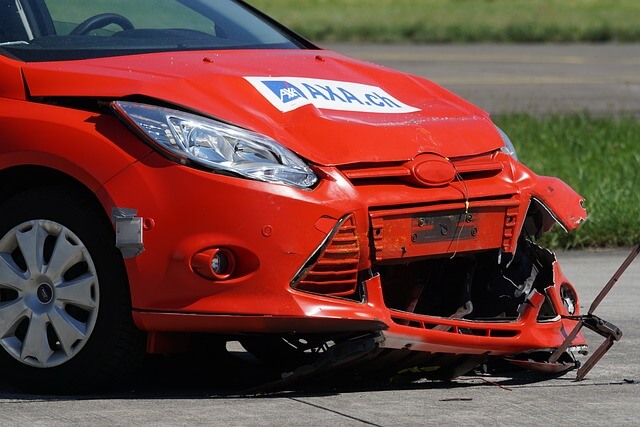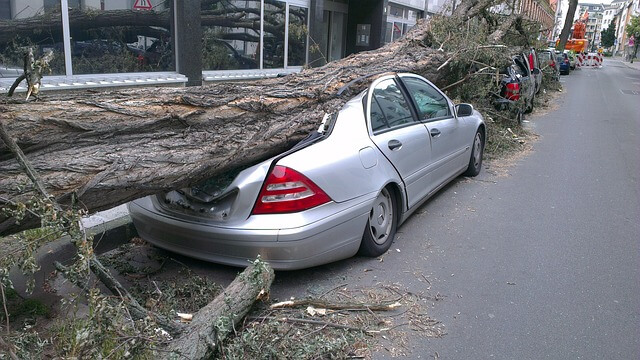Will Car Insurance Pay for Repairs?
Car insurance is essential for protecting your vehicle and finances in the event of an accident. However, it’s important to understand what car insurance does and does not cover, especially when it comes to repairs. Unfortunately, standard car insurance typically does not cover the cost of repairs to your vehicle. This means that if your car is damaged due to an accident or mechanical breakdown, you may be left to foot the bill on your own.
To ensure that your car is protected from certain types of damage, it may be necessary to add comprehensive and collision coverage to your policy. These coverages can help cover the cost of repairs in the event of accidents, natural disasters, or non-driving incidents like hailstorms. On the other hand, liability car insurance specifically does not cover repairs to your own vehicle, only covering the cost of repairs to the other person’s car if you are at fault in an accident.
If you’re concerned about mechanical breakdowns, you may want to consider adding car repair insurance, also known as mechanical breakdown insurance (MBI), to your policy. MBI can help cover the costs of repairs in the event of a mechanical breakdown. However, it’s important to note that not all auto insurance providers offer MBI, and there may be limitations on when it can be purchased based on the age or mileage of your vehicle. MBI is similar to an extended car warranty but may have more purchasing limitations.
In conclusion, while car insurance is crucial for protecting your vehicle, it typically does not cover the cost of repairs. To ensure that your car is protected from various types of damage, you may need to consider adding comprehensive and collision coverage to your policy. Additionally, if you’re concerned about mechanical breakdowns, car repair insurance or extended warranties may be worth considering. It’s important to carefully review your policy and understand the coverage options available to you.
- Car insurance typically does not cover the cost of repairs to your vehicle, including liability car insurance.
- To protect your car from certain types of damage, consider adding comprehensive and collision coverage to your policy.
- Mechanical breakdown insurance (MBI) can help cover the costs of repairs in the event of a mechanical breakdown, but not all auto insurance providers offer it.
- MBI policies typically cover repairs or replacement of components like brakes, engine parts, transmission, alternator, air conditioning, steering, and fuel system.
- Extended warranties can cover routine maintenance expenses and provide additional benefits, but eligibility may depend on factors like vehicle age, condition, mileage, and maintenance history.
Understanding Car Insurance Coverage

Car insurance is essential for protecting yourself and your vehicle from unforeseen events. However, it’s important to understand that car insurance typically does not cover the cost of repairs to your vehicle. This means that if your car needs repairs due to mechanical breakdowns or routine wear and tear, you may be responsible for the expenses.
Types of Car Insurance Coverage
- Liability Car Insurance: Liability insurance specifically does not cover repairs to your vehicle. It only pays for the cost of repairs to the other person’s car if you are at fault in a car accident.
- Comprehensive and Collision Coverage: To protect your car from certain types of damage, such as accidents or non-driving accidents like hailstorms, you may need to add comprehensive and collision coverage to your policy. These types of coverage can help cover the cost of repairs in the event of a car accident or other covered incidents.
- Mechanical Breakdown Insurance (MBI): Car repair insurance, also known as MBI, can help cover the costs of repairs in the event of a mechanical breakdown. MBI policies typically cover repairs or replacement of components such as brakes, engine parts, transmission, alternator, air conditioning, steering, and fuel system. However, they do not cover regular maintenance on systems designed to wear out, such as oil changes, brake pads, tire rotations, and windshield wiper blades.
- Extended Warranties: Extended warranties can be purchased to cover routine maintenance expenses and provide additional benefits such as rental reimbursement, roadside assistance, towing, and partial coverage for car repairs. Eligibility for extended warranties may depend on factors such as vehicle age, condition, mileage, and maintenance history. It’s important to note that extended warranties typically have more limited coverage and shorter eligibility periods compared to MBI policies.
It’s vital to review your car insurance policy carefully to understand what is covered and what is not. While car insurance can provide financial protection in certain situations, it’s essential to consider additional coverage options like MBI or extended warranties to ensure comprehensive protection for your vehicle. Remember to consult with your insurance provider to determine the best coverage options for your specific needs.
What is Covered by Car Insurance
Accidents and Natural Disasters
When it comes to car insurance, it’s important to understand what expenses will be covered in the event of an accident or natural disaster. While car insurance typically does not cover the cost of repairs to your vehicle, it does provide coverage for damages caused by accidents. If you are at fault in a car accident, your liability insurance will pay for the cost of repairs to the other person’s car. This ensures that you are financially protected in case of a collision.
Additionally, car insurance also covers expenses associated with natural disasters such as hailstorms. Comprehensive coverage, which is an optional add-on to your policy, protects your car from certain types of damage, including those caused by natural disasters. So if your car gets damaged in a hailstorm or any other non-driving accidents, your car insurance will cover the cost of repairs.
Collision and Comprehensive Coverage
To further protect your car from various types of damage, you may need to consider adding collision and comprehensive coverage to your policy. Collision coverage pays for the cost of repairs in the event of a car accident, regardless of who is at fault. This coverage ensures that your car is repaired or replaced in case of a collision.
Comprehensive coverage, on the other hand, protects your car from damage caused by events other than collisions. This includes damage from natural disasters, theft, vandalism, and more. With comprehensive coverage, you can have peace of mind knowing that your car repairs will be covered in a wide range of scenarios.
It’s important to note that standard car insurance does not cover repairs related to routine wear and tear or mechanical breakdowns. However, you can consider purchasing car repair insurance, also known as mechanical breakdown insurance (MBI), to cover the costs of repairs in the event of a mechanical breakdown. MBI policies typically cover repairs or replacement of components such as brakes, engine parts, transmission, alternator, air conditioning, steering, and fuel system.
In conclusion, while car insurance may not cover the cost of repairs to your vehicle in all situations, it does provide coverage for expenses associated with accidents, natural disasters, and non-driving accidents. By adding comprehensive and collision coverage to your policy, you can ensure that your car is protected from a wide range of potential damages. And if you’re concerned about mechanical breakdowns, considering a car repair insurance policy can provide additional coverage for those repairs. Remember to check with your insurance provider for specific details and limitations.

What is Not Covered by Car Insurance
Car insurance is essential for protecting your vehicle from unexpected events, but it’s important to know what it does not cover. Routine wear and tear and mechanical breakdowns are two common areas where car insurance falls short.
Routine Wear and Tear
When it comes to regular maintenance, such as oil changes, tire rotations, and brake pad replacements, car insurance does not foot the bill. These are considered normal expenses that come with owning a vehicle. However, you can opt for extended warranties that cover routine maintenance.
Mechanical Breakdowns
If your car experiences a mechanical breakdown, standard car insurance won’t cover the repair costs. This is where car repair insurance, also known as mechanical breakdown insurance (MBI), comes into play. MBI policies can help cover the expenses associated with mechanical breakdowns, including repairs or replacements of components like brakes, engine parts, transmission, alternator, and more.
It’s worth noting that not all auto insurance providers offer MBI, and there may be limitations based on the age or mileage of your vehicle. Additionally, MBI is similar to an extended car warranty but may have more purchasing limitations.
While car insurance may not cover routine wear and tear or mechanical breakdowns, it does provide coverage for accidents and natural disasters. Collision and comprehensive insurance can help cover the cost of repairs in the event of a car accident or non-driving accidents like hailstorms. Liability insurance, on the other hand, pays for the cost of repairs to the other person’s car if you are at fault in a car accident.
In conclusion, car insurance does not cover routine wear and tear or mechanical breakdowns. However, you can consider purchasing mechanical breakdown insurance or extended warranties to provide additional coverage for these expenses. To understand the specific coverage offered by your car insurance policy, it’s essential to review the terms and conditions or consult with your insurance provider.
For more information on car insurance coverage, you can refer to this MarketWatch guide.
Adding Comprehensive and Collision Coverage
One of the most common misconceptions about car insurance is that it will cover the cost of repairs to your vehicle. However, this is not typically the case. Standard car insurance, particularly liability car insurance, does not cover repairs to your own vehicle. So, what can you do to protect your car from unexpected damage?
The solution lies in adding comprehensive and collision coverage to your policy. These additional coverage options can provide you with peace of mind knowing that your car is protected from certain types of damage. Comprehensive coverage will cover expenses associated with natural disasters, theft, vandalism, and other non-driving accidents. Collision coverage, on the other hand, will cover the cost of repairs in the event of a car accident.
Adding comprehensive and collision coverage to your car insurance policy comes with several benefits. Firstly, it ensures that you won’t have to bear the financial burden of repairing or replacing your vehicle in the event of an accident or non-driving accident. Additionally, comprehensive and collision coverage can provide you with a sense of security, knowing that you’re protected no matter what happens.
However, it’s important to consider the cost implications of adding comprehensive and collision coverage to your policy. The cost of these additional coverage options will vary depending on factors such as your driving history, the make and model of your vehicle, and your location. It’s essential to weigh the benefits of added coverage against the additional cost to determine if it’s the right choice for you.
In conclusion, car insurance typically does not cover the cost of repairs to your vehicle. To protect your car from certain types of damage, such as accidents and non-driving accidents, adding comprehensive and collision coverage to your policy is essential. While there are benefits to additional coverage, it’s important to consider the cost implications before making a decision. Remember, car insurance is designed to provide financial protection, and adding comprehensive and collision coverage can offer you peace of mind on the road.
Citation: MarketWatch

Mechanical Breakdown Insurance (MBI)
Car insurance typically does not cover the cost of repairs to your vehicle. Liability car insurance, in particular, is not designed to cover repairs to your own vehicle. To ensure your car is protected from various types of damage, you may need to consider adding comprehensive and collision coverage to your policy. These additional coverages can help with repairs resulting from accidents, natural disasters, and non-driving incidents like hailstorms.
However, for repairs related to routine wear and tear or mechanical breakdowns, car insurance alone may not be sufficient. This is where mechanical breakdown insurance (MBI), also known as car repair insurance, comes into play. MBI can provide coverage for the costs of repairs in the event of a mechanical breakdown.
Coverage for Mechanical Repairs
MBI policies typically cover repairs or replacement of components such as brakes, engine parts, transmission, alternator, air conditioning, steering, and fuel system. It is important to note that MBI policies do not cover regular maintenance on systems designed to wear out, such as oil changes, brake pads, tire rotations, and windshield wiper blades.
Limitations and Purchasing Options
Not all auto insurance providers offer MBI, and there may be limitations on when it can be purchased based on the age or mileage of the vehicle. MBI is similar to an extended car warranty, but it may have more purchasing limitations. Extended warranties can be purchased separately to cover routine maintenance expenses and may provide additional benefits such as rental reimbursement, roadside assistance, towing, and partial coverage for car repairs.
When considering MBI or extended warranties, eligibility may depend on factors such as vehicle age, condition, mileage, and maintenance history. It’s important to review the terms and conditions of these policies to understand what is covered and any limitations that may apply.
In conclusion, while standard car insurance may not cover repairs for routine wear and tear or mechanical breakdowns, MBI can help provide coverage in such situations. Extended warranties can also be considered for routine maintenance expenses. It’s essential to carefully evaluate the options available and choose the coverage that best suits your needs and vehicle requirements.
Citation: Car and Driver
Extended Warranties for Car Repairs
Benefits and Coverage
When it comes to car repairs, many people wonder if their car insurance will cover the costs. The answer is generally no. Car insurance, especially liability insurance, typically does not cover repairs to your vehicle. However, there are options available to protect your car from certain types of damage.
Comprehensive and collision coverage can be added to your car insurance policy to cover repairs in the event of accidents or non-driving incidents like hailstorms. These coverages will pay for the cost of repairs or replacement of your vehicle up to its actual cash value.
For repairs related to mechanical breakdowns, there is another option: car repair insurance, also known as mechanical breakdown insurance (MBI). MBI policies can help cover the costs of repairs when your vehicle experiences a mechanical breakdown. While not all auto insurance providers offer MBI, it can be a valuable addition to your policy if you want extra protection.
MBI policies typically cover repairs or replacement of components such as brakes, engine parts, transmission, alternator, air conditioning, steering, and fuel system. However, they do not cover regular maintenance on systems designed to wear out, such as oil changes, brake pads, tire rotations, and windshield wiper blades.
Comparison to MBI Policies
You may be wondering how MBI policies compare to extended warranties. While they both provide coverage for car repairs, there are some differences to consider.
MBI policies are usually offered by auto insurance providers, while extended warranties are typically sold by car manufacturers or third-party companies. MBI policies may have more purchasing limitations, such as restrictions based on the age or mileage of the vehicle.
Extended warranties not only cover repairs but may also provide additional benefits such as rental reimbursement, roadside assistance, towing, and partial coverage for car repairs. They can even cover routine maintenance expenses, which MBI policies do not.
In terms of cost, MBI policies generally cost less than extended warranties. However, eligibility for extended warranties may depend on factors such as vehicle age, condition, mileage, and maintenance history.
When it comes to choosing between MBI policies and extended warranties, it’s important to carefully consider your specific needs and budget. While both options can provide valuable coverage for car repairs, they have different limitations and benefits.
It’s always a good idea to review your car insurance policy and consider adding comprehensive and collision coverage if you want protection for repairs related to accidents or non-driving incidents. And if you’re concerned about mechanical breakdowns, exploring MBI policies or extended warranties can provide added peace of mind.

Making Informed Decisions
When it comes to car insurance, understanding what is covered and what is not can help you make informed decisions. One common question is whether car insurance will pay for repairs to your vehicle. In most cases, car insurance does not cover the cost of repairs. Liability car insurance specifically does not cover repairs to your own vehicle. To protect your car from certain types of damage, such as accidents or natural disasters, you may need to add comprehensive and collision coverage to your policy.
Factors to Consider
Before deciding on the type of coverage to add to your car insurance policy, there are several factors to consider. First, determine if your vehicle is eligible for mechanical breakdown insurance (MBI). Not all auto insurance providers offer MBI, and there may be limitations on when it can be purchased based on the age or mileage of the vehicle. MBI is similar to an extended car warranty, but it may have more purchasing limitations.
Regular Maintenance and Additional Benefits
It’s important to note that car insurance, including MBI, does not cover repairs related to routine wear and tear or mechanical breakdowns. For regular maintenance expenses such as oil changes, brake pads, tire rotations, and windshield wiper blades, you may need to purchase extended warranties. These warranties not only cover routine maintenance but also provide additional benefits such as rental reimbursement, roadside assistance, towing, and partial coverage for car repairs.
In comparison to extended warranties, MBI policies typically cost less and cover repairs or replacement of components such as brakes, engine parts, transmission, alternator, air conditioning, steering, and fuel system. Collision and comprehensive insurance, on the other hand, cover the cost of repairs in the event of a car accident or non-driving accidents like hailstorms.
To make the best decision for your situation, consider factors such as vehicle age, condition, mileage, and maintenance history when evaluating eligibility for extended warranties or MBI coverage. By understanding the limitations and benefits of different insurance options, you can ensure that you are adequately protected and prepared for any unexpected repairs that may arise.
Research Citation: Car and Driver
Frequently Asked Questions
Does car insurance cover the cost of repairs to my vehicle?
No, car insurance typically does not cover the cost of repairs to your vehicle.
Does liability car insurance cover repairs to my vehicle?
No, liability car insurance specifically does not cover repairs to your vehicle.
How can I protect my car from certain types of damage?
To protect your car from certain types of damage, you may need to add comprehensive and collision coverage to your policy.
Does standard car insurance cover repairs related to routine wear and tear or mechanical breakdowns?
No, standard car insurance does not cover repairs related to routine wear and tear or mechanical breakdowns.
What is car repair insurance or mechanical breakdown insurance (MBI)?
Car repair insurance, also known as mechanical breakdown insurance (MBI), can help cover the costs of repairs in the event of a mechanical breakdown.
Do all auto insurance providers offer MBI?
No, not all auto insurance providers offer MBI, and there may be limitations on when it can be purchased based on the age or mileage of the vehicle.
How is MBI different from an extended car warranty?
MBI is similar to an extended car warranty, but it may have more purchasing limitations.
Will car insurance cover expenses associated with natural disasters and accidents?
Yes, car insurance will cover expenses associated with natural disasters and accidents.
What components are typically covered by MBI policies?
MBI policies typically cover repairs or replacement of components such as brakes, engine parts, transmission, alternator, air conditioning, steering, and fuel system.
Does MBI cover regular maintenance on systems designed to wear out?
No, MBI policies do not cover regular maintenance on systems designed to wear out, such as oil changes, brake pads, tire rotations, and windshield wiper blades.
Can extended warranties cover routine maintenance expenses?
Yes, extended warranties can be purchased to cover routine maintenance expenses.
What additional benefits can extended warranties provide?
Extended warranties may also provide additional benefits such as rental reimbursement, roadside assistance, towing, and partial coverage for car repairs.
What factors determine eligibility for extended warranties?
Eligibility for extended warranties may depend on factors such as vehicle age, condition, mileage, and maintenance history.
Are MBI policies more affordable than extended warranties?
Yes, MBI policies typically cost less than extended warranties.
What do collision and comprehensive insurance cover?
Collision and comprehensive insurance cover the cost of repairs in the event of a car accident or non-driving accidents like hailstorms.
What does liability insurance cover?
Liability insurance pays for the cost of repairs to the other person’s car if you are at fault in a car accident.
What do mechanical warranties provide coverage for?
Mechanical warranties can provide coverage for mechanical breakdowns but have more limited coverage and shorter eligibility periods.









